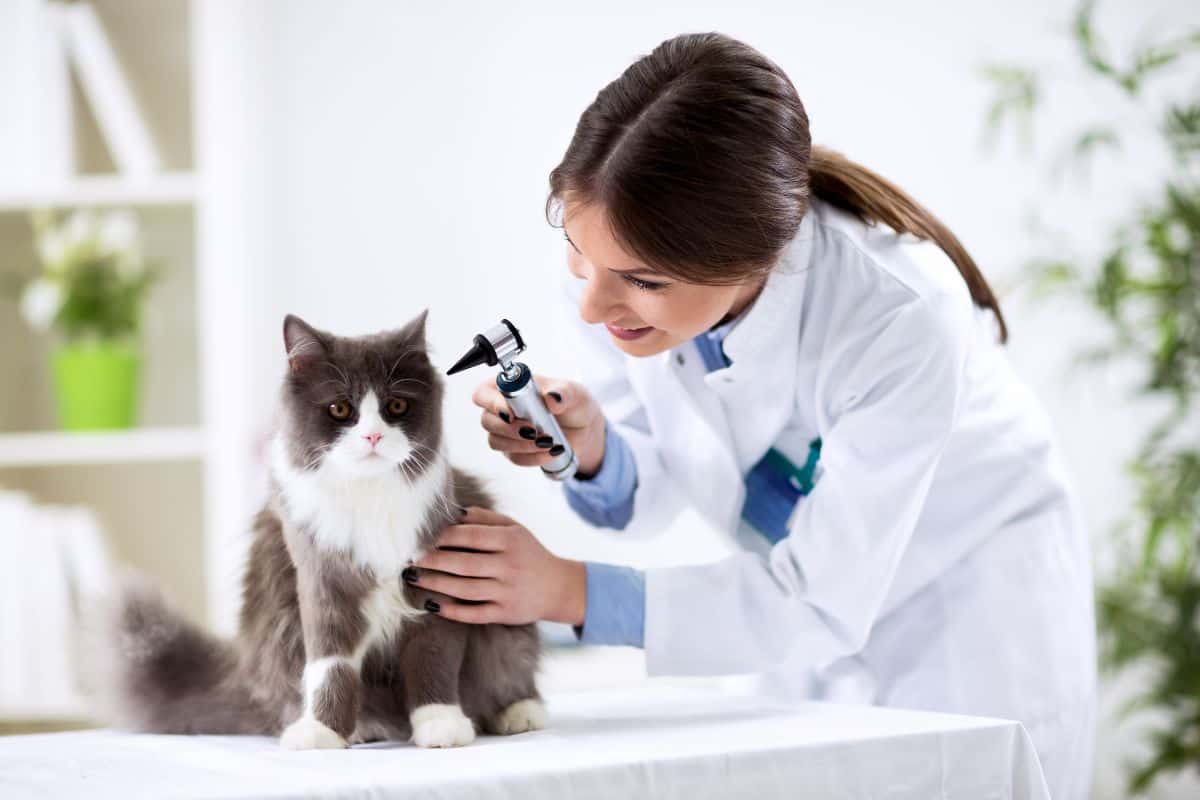What Sets Animal Hospital Greensburg Besides Various Other Regional Centers
What Sets Animal Hospital Greensburg Besides Various Other Regional Centers
Blog Article
Professional Tips for Animal Nutrition From a Vet
Recognizing the dietary requirements of animals is vital for their total health and long life. Vets suggest a well balanced diet plan that satisfies private elements such as age, activity, and type degree. Yet, with the plethora of family pet food options readily available, pet proprietors usually discover themselves navigating a landscape raging with false information and myths. As we explore crucial ideas from veterinary specialists, it ends up being noticeable that appropriate nourishment is not merely concerning what is fed but includes a much deeper understanding of each family pet's unique requirements. What key understandings could transform your technique to animal nourishment?
Recognizing Nutritional Requirements
Recognizing the nutritional demands of animals is essential to guaranteeing their overall health and wellness and health. Similar to people, pet dogs require a balanced diet that offers essential nutrients, including proteins, fats, minerals, carbohydrates, and vitamins. These nutrients play critical duties in numerous physical features, such as energy production, immune action, and cells repair work.
They are composed of amino acids, some of which are essential and must be acquired from food. Carbohydrates offer as a primary energy source and can sustain digestive system health and wellness when they include fiber.
Each pet dog may have special needs based on factors such as age, breed, task level, and health and wellness standing. It is necessary to seek advice from with a vet to figure out the certain dietary requirements customized to your pet's private demands, guaranteeing they obtain optimum nourishment throughout their life phases.

Picking the Right Food
It is important to think about factors such as age, health, type, and dimension standing when choosing an animal food. Senior pets may profit from foods developed to address age-related issues, such as joint health or weight monitoring.
When reviewing pet food alternatives, search for products that satisfy the Organization of American Feed Control Officials (AAFCO) requirements, which ensure that the food provides full and balanced nourishment. Components ought to be premium, with genuine meat as the primary source of protein. Prevent foods with too much fillers, man-made additives, or spin-offs, as these can diminish the total dietary value.
Consulting with a veterinarian can provide tailored recommendations based upon your animal's details requirements. Additionally, transitioning in between foods need to be done progressively to stay clear of gastrointestinal distress. By taking these actions, animal owners can make certain that they are offering their furry companions with the best feasible nutrition for a healthy and balanced and happy life.
Typical Myths About Family Pet Food
Disproving mistaken beliefs surrounding pet food is critical for making certain optimum nourishment for our fuzzy companions. One common myth is that all grain-free diet regimens are premium for pet dogs.

In addition, several pet owners believe that "costs" or "natural" labels ensure higher top quality. However, these terms are often unregulated and do not necessarily suggest exceptional dietary value. It is vital to inspect active ingredient listings and nutritional accounts rather.
Special Factors To Consider for Various Breeds
When it concerns pet nutrition, special factors to consider have to be taken into account for different breeds, as each breed can have distinct dietary needs and level of sensitivities. As an example, huge breeds such as Terrific Danes and Saint Bernards are prone to bone and joint concerns and may gain from diets created to support joint wellness, usually including components like glucosamine and omega fats. Alternatively, tiny types like Chihuahuas might need greater calorie thickness to fulfill their energy degrees, requiring solutions that are abundant in nutrients however reduced in bulk.
Furthermore, certain breeds might be inclined to particular health problems, such as food allergies or level of sensitivities. Types like Labrador Retrievers may have problem with excessive weight, calling for mindful portion control and a balanced diet plan to preserve a healthy and balanced weight. On the other hand, breeds such as Dachshunds may be more vulnerable to spinal issues, motivating a requirement for diets that promote spinal health and wellness and weight management.
Ultimately, recognizing these breed-specific dietary needs is important for family pet owners. Consulting with a vet can help in choosing the most appropriate diet tailored to an individual pet's age, type, and health and wellness status, ensuring optimal nourishment and well-being.
Significance of Regular Vet Examinations
Comprehending the Homepage unique dietary requirements of different breeds is just one facet of responsible pet ownership; normal veterinary examinations play a crucial function in maintaining total health. These exams are essential for early detection of health and wellness problems, ensuring that any prospective issues are attended to before they come to be significant. Normal gos to enable veterinarians to check your pet dog's weight, dental health and wellness, and crucial signs, which are crucial signs of total wellness.
Moreover, regular examinations enable vets to supply customized dietary suggestions based on your pet's specific health condition - Animal Chiropractor Greensburg. As pets age, their dietary demands might transform, and adjustments may be essential to stop weight problems or nutrient shortages. Preventative care, consisting of vaccinations and parasite control, is additionally a basic component of these visits, protecting your animal from different conditions
In enhancement to physical exams, these appointments offer a superb possibility for pet proprietors to discuss behavioral adjustments or issues concerning their family pet's eating behaviors. By focusing on routine veterinary examinations, animal owners can make sure a much longer, much healthier life for their fuzzy buddies, inevitably boosting their high quality of life.
Final Thought
In final thought, see page making certain optimal family pet nutrition requires an extensive understanding of individual nutritional demands, ideal food choice, and awareness of common misconceptions. Unique considerations for different breeds have to be represented, and normal veterinary check-ups play a crucial role in checking health and nutritional changes. Complying with AAFCO requirements and speaking with vets before making nutritional adjustments will improve the well-being of animals, eventually adding to their durability and lifestyle.
With the plethora of pet food options readily available, pet proprietors often click this link locate themselves browsing a landscape raging with false information and misconceptions. Each family pet might have one-of-a-kind requirements based on variables such as age, type, task degree, and wellness status. It is vital to take into consideration factors such as age, type, health and wellness, and size standing when choosing a pet dog food. Senior animals might benefit from foods created to resolve age-related issues, such as joint health and wellness or weight monitoring.
Recognizing the unique dietary demands of different breeds is only one element of accountable pet dog possession; regular veterinary exams play an important function in maintaining total health and wellness.
Report this page